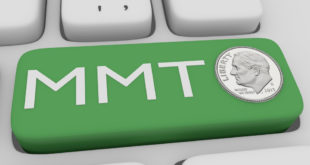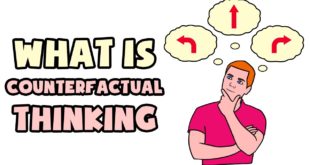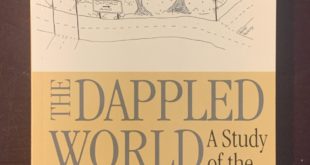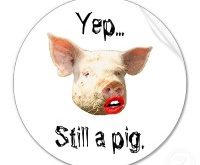MMT — Krugman still does not get it! Krugman complains that Lerner was too “cavalier” in his discussion of monetary policy since he called for the interest rate to be set at the level that produces “the most desirable level of investment” without saying exactly what that rate should be. It’s an odd critique, since Krugman himself subscribes to the idea that monetary policy should target an invisible “neutral rate,” a so-called r-star that exists when the...
Read More »Sadeness
.[embedded content]
Read More »Using counterfactuals in causal inference
Using counterfactuals in causal inference I have argued that there are four major problems in the way of using the counterfactual account for causal inference. Of the four, I argued that the fourth — the problem of indeterminacy — is likely to be the most damaging: To the extent that some of the causal principles that connect counterfactual antecedent and consequent are genuinely indeterministic, the counterfactual will be of the “might have been” and not...
Read More »On fighting inflation
.[embedded content] Absolutely lovely! Comedian and television host Jon Stewart turns out to know much more about real-world economics than mainstream Harvard economist Larry Summers. Don’t know why, but watching this interview/debate makes yours truly come to think about a famous H. C. Andersen tale …
Read More »Physics envy — a sure way to make economics useless
Physics envy — a sure way to make economics useless In the 1930s, Lionel Robbins laid down the basic commandments of the discipline when he said that the premises on which economics was founded followed from ‘deduction from simple assumptions reflecting very elementary facts of general experience’, and as such were ‘as universal as the laws of mathematics or mechanics, and as little capable of “suspension”. Ah yes, general experience. What did Albert...
Read More »On the method of ‘successive approximations’
In The World in the Model, Mary Morgan characterizes the modelling tradition of economics as one concerned with “thin men acting in small worlds” and writes: Strangely perhaps, the most obvious element in the inference gap for models … lies in the validity of any inference between two such different media – forward from the real world to the artificial world of the mathematical model and back again from the model experiment to the real material of the economic world. The model...
Read More »Mainstream economics — a vending machine view
Mainstream economics — a vending machine view The theory is a vending machine: you feed it input in certain prescribed forms for the desired output; it gurgitates for a while; then it drops out the sought-for representation, plonk, on the tray, fully formed, as Athena from the brain of Zeus. This image of the relation of theory to the models we use to represent the world is hard to fit with what we know of how science works. When applying deductivist...
Read More »‘New Keynesian’ price stickiness
‘New Keynesian’ price stickiness ‘New Keynesian’ macroeconomists have for years been arguing (e.g. here) about the importance of the New Classical Counter Revolution in economics. ‘Helping’ to change the way macroeconomics is done today — with rational expectations, Euler equations, intertemporal optimization, and microfoundations — their main critique of New Classical macroeconomics is that it didn’t incorporate price stickiness into the Real Business...
Read More »The labor shortage myth
The labor shortage myth .[embedded content]
Read More »Keynes’ denial of conflict: why The General Theory is a misleading guide to capitalism and stagnation
Keynes’ General Theory was a massive step forward relative to classical economics, but it was also a step backward in its denial of the conflictual nature of capitalism. There is need to understand Keynes’ technical contributions regarding the workings of monetary economies, but also need to understand the flaws within his thinking and the consequences […]
Read More » Heterodox
Heterodox





